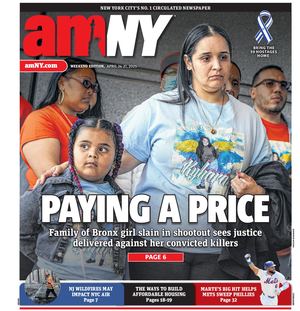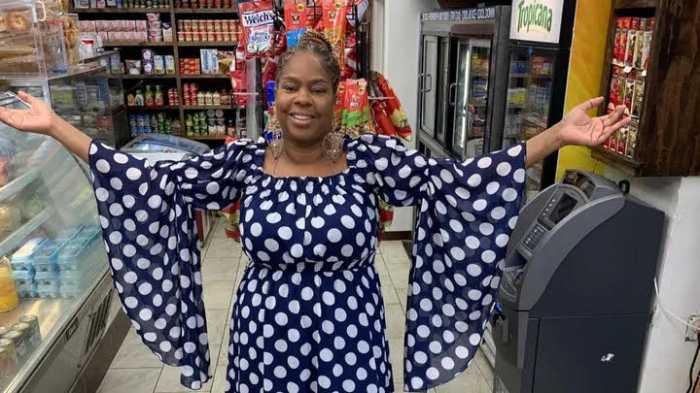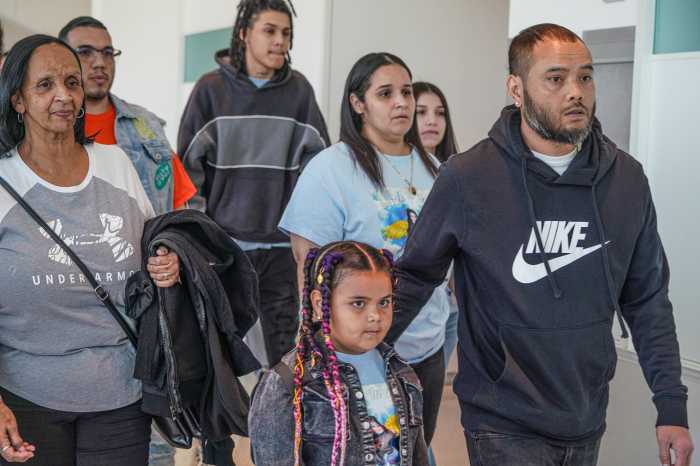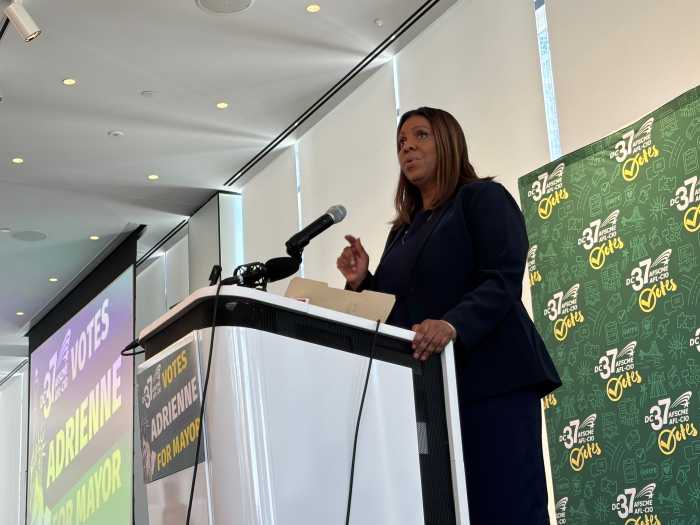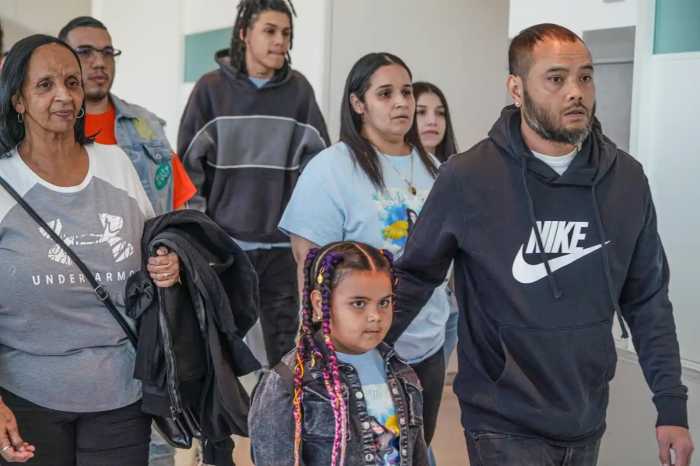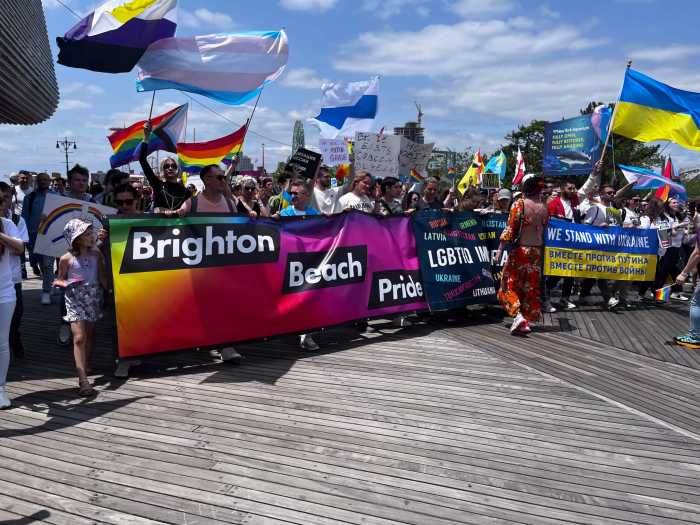Women are catching up in business.
The number of women running their own companies in New York City nearly doubled in the past decade, data shows. However, there are still areas where they’re falling behind their male counterparts.
Female business owners last year employed more than 190,000 people and produced roughly $50 billion in sales revenue per year, according to a report released in November 2015 by the city agency Women Entrepreneurs (WE) NYC.
But men owned 1.5 times the number of businesses as women, and those businesses employed roughly 3.5 times the number of people while earning about 4.5 times more revenue per year, the report found.
“Women entrepreneurs are key economic actors in the city. They have a real impact here,” said Rachel Von Tosh, acting commissioner for business development at the NYC department of Small Business Services. “They also contribute to their communities and to their families in a really meaningful way.”
To try to close the gap, the city this year will offer free programs, such as classes and mentorships, to 5,000 female entrepreneurs around the city. The mentorship program was unveiled at an event Tuesday and will feature 17 accomplished businesswomen from fields such as health care, tech and public relations, including Karen Taylor Bass, founder of TaylorMade Media, and Liz Gutman, who owns the Brooklyn-based treats empire Liddabit Sweets.
But rather than wait for the government to solve the problem, women business owners have been hosting grassroots workshops and panels to help each other grow their companies.
The surge
Female entrepreneurship in New York City grew by 43% since 2002, according to the WE NYC report. The number of male-owned businesses rose 25% in that time period.
There were 114,896 female-owned businesses in the city in 2012, according to census data. They employed 124,952 people and earned more than $31 billion in revenue that year.
A number of factors are contributing to the rise in women business owners, according to Carla Harris, chair of the National Women’s Business Council.
Women who were laid off during the recession and those in the millennial generation have become hungry to run their own businesses, she said. Meanwhile, successful businesswomen are looking to become angel investors to help other women, and incubators provided by the city make resources available for growing businesses.
“Necessity becomes the mother of invention,” Harris said. “The network is broadening.”
The challenges
Obstacles that women business owners face range from emotional insecurities to a lack of access to capital, according to WE NYC, which surveyed more than 1,500 businesswomen in New York City.
One of the most notable numbers to come out of the report was that 75% of the women surveyed said a “lack of confidence” is a struggle. Similarly, less than one third of the women rated themselves proficient in soft skills like negotiations.
To start their businesses, more than half of the city’s female entrepreneurs had less than $10,000 in initial capital, compared to 33% of men. Only 10% of women rely on banks for capital, compared to 20% of men. Loan approval rates are 15-20% lower for female business owners than for men across the United States, WE NYC found.
Naama Bloom, 43, who founded the women’s health and wellness website HelloFlo in 2013 with $10,000 in startup capital, said she has found it difficult to be confident.
Despite HelloFlo becoming a global brand, and her receiving numerous business awards, when people ask her what she does for a living, “I’m like, ‘I run a little e-commerce website,’” said Bloom, who currently has two full-time employees. Though she knows she is successful, there’s a nagging voice that says, “‘I can’t pay myself a real salary,’” she said. “I feel like I should be doing better.”
But Jason Saltzman, co-founder of NYC-based co-working space Alley, said the roller coaster of success and failure in running a business would hurt anyone’s confidence.
Despite starting Alley in May 2012 with $1 million from angel funding and 16,000 square feet in New York City real estate — and having raised another $16 million to date from private equity investors, while currently employing 35 people — Saltzman said he still has bad days and battles his own fears.
“It’s a very emotional process. One day is the best day of your life, directly followed by the worst day of your life,” he said. “The best CEOs in the world have gone through this.”
The solutions
In addition to its mentorship program, WE NYC will hosts networking events and, starting this spring, will offer master courses on subjects such as money and credit, how to obtain funding, and leadership, specifically in areas like negotiations and communications.
More info and resources can be found at its website, nyc.gov/wenyc, and at the agency’s Facebook page.
But New Yorkers are keen on solving problems themselves, and a number of female business owners amNewYork spoke with said they’ve already been hosting workshops in their stores and living rooms.
Makini Brereton, 34, who runs Makini Regal Designs, a floral design company that she started in 2011 with less than $10,000 and currently operates out of her Bed-Stuy brownstone, is part of a group of female business owners that periodically meet with experts to seek advice.
“We’ve decided to be our own support system,” she said.
Dorie Smith and her co-founder, Emelyn Northway, who together run the NYC-based workwear apparel company Of Mercer, which they started two years ago with $10,000, have a co-working space for entrepreneurs in their West 21st Street retail store.
Their company, which has five full-time employees, hosts informal panels where business experts come to engage in conversations with budding female entrepreneurs.
“One of the things we found surprising was how open and supportive other female entrepreneurs were,” Smith said of her networking experiences. “We see such a culture of sharing, because it feels like you’re helping a friend.”
